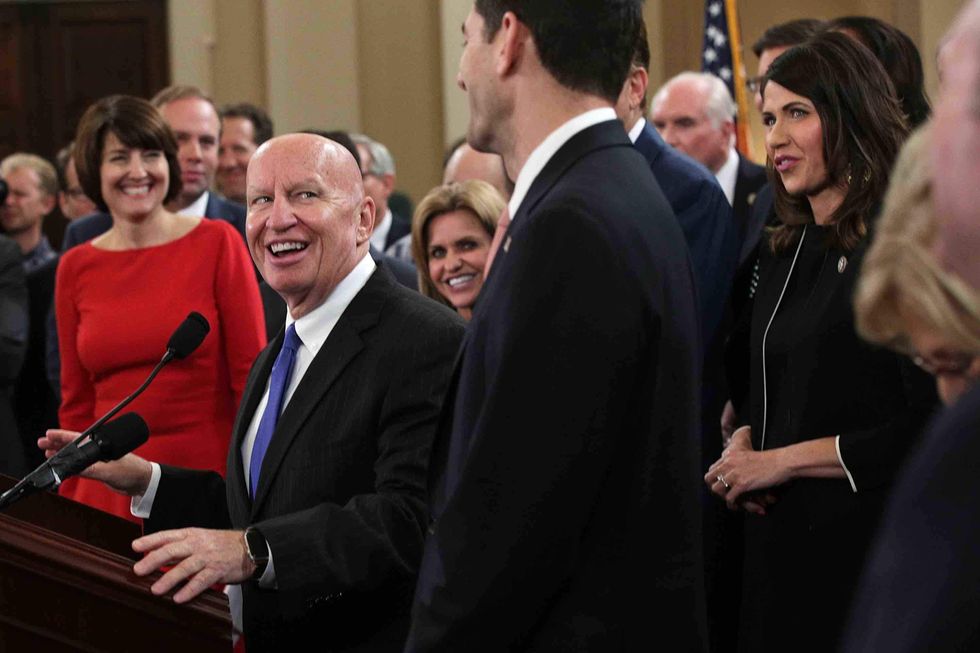
Chairman of House Ways and Means Committee Rep. Kevin Brady (R-Texas), left, shares a moment with Speaker of the House Rep. Paul Ryan (R-Wis.) Thursday. House Republicans unveiled their tax reform legislation, which includes a hidden fifth tax bracket for the wealthy. (Alex Wong/Getty Images)


